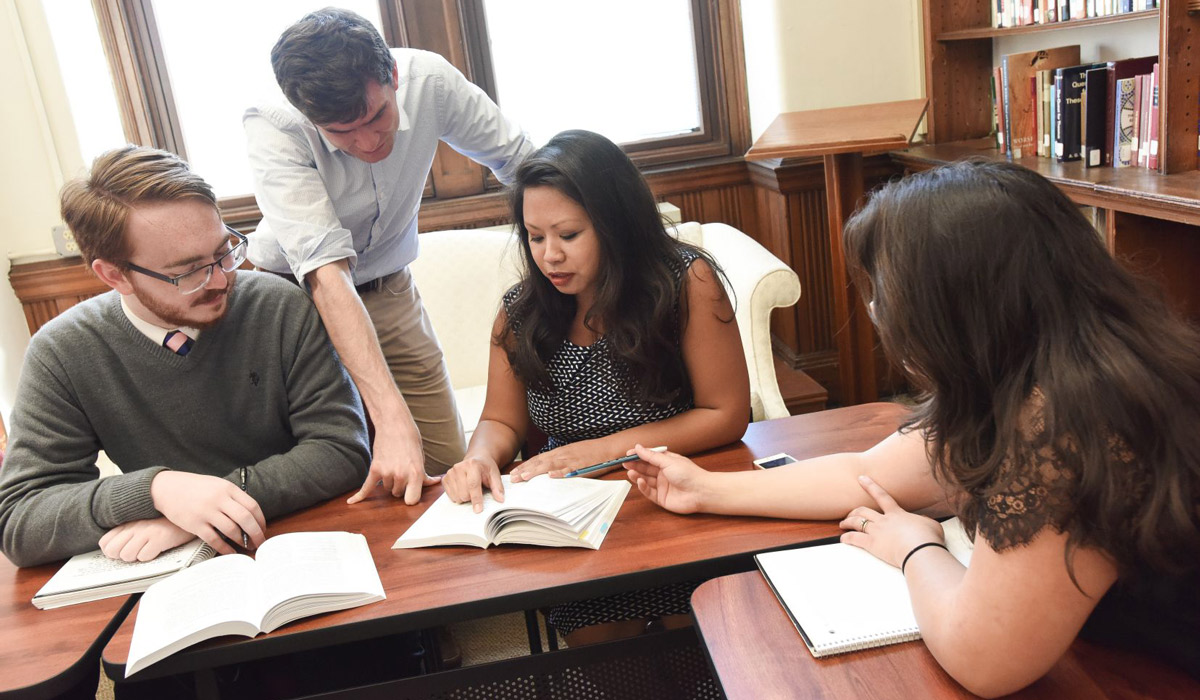
According to the American Historical Association (AHA)'s recent survey of doctoral program career outcomes, our placement record of Ph.D. recipients closely tracks the range of outcomes for Carnegie R1- and R2-ranked institutions. About one-half of those receiving Ph.D.s in history from our department since 2000 are in tenured or tenure-track positions at 4-year colleges or universities or in other categories of faculty appointments, or work in higher education administration. Most distinctively, nearly 30 per cent of CUA’s history Ph.D.s work in government, a proportion far higher than is the case with any other R1-ranked or R2-ranked institution in the AHA study. Some of these work as part of the research staffs of the historical offices of federal executive branch departments or military, while others work in analysis or managerial roles in federal agencies. Their success reflects their careful training in research and analytical training, the department’s leveraging of its Washington location, and the increasingly wide range of opportunities for history Ph.D.s working in research-related positions outside academia. Click here for more on our doctoral students.
The department's M.A. alumni work in remarkably far-ranging career fields, from museums, libraries, and public history venues, to federal and other government agencies, to teaching and media.
For the AHA careers outcomes study, with data from Catholic University and 33 other history doctoral programs, see:
- “Where Historians Work: An Interactive Database of History PhD Career Outcomes”, online at https://www.historians.org/jobs-and-professional-development/career-diversity-for-historians/career-diversity-resources/where-historians-work-an-interactive-database-of-history-phd-career-outcomes
- For information and other resources relating to career diversity for history Ph.D.s, also from the AHA , see: https://www.historians.org/jobs-and-professional-development/career-diversity-for-historians
